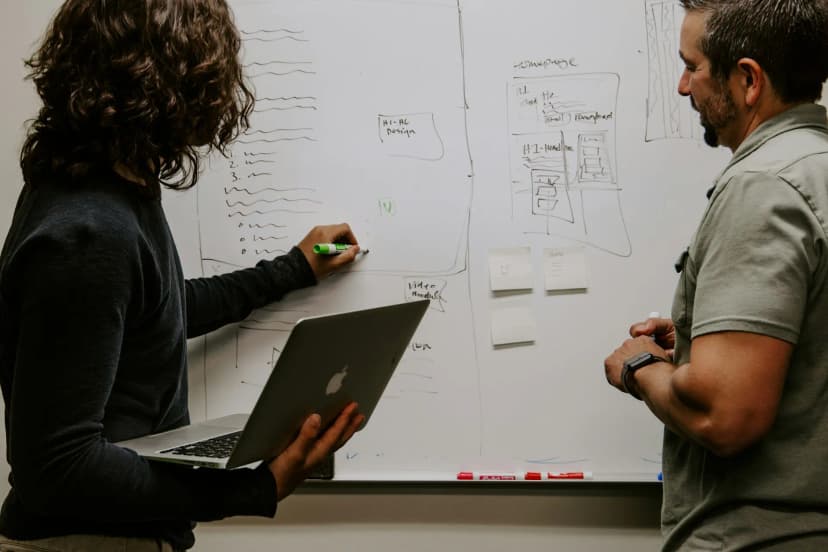The new paradigm: lean, AI-powered efficiency
The advent of generative AI is fundamentally reshaping how companies can be structured and operated. We're witnessing the emergence of exceptionally lean organisations achieving outsized success with minimal headcount. This represents a dramatic shift from traditional company scaling models, where growth typically demanded proportional team expansion.
Leveraging AI for maximum efficiency
Today's businesses can maintain incredibly lean operations by strategically deploying AI across multiple functions. Development and technical operations, for instance, can be enhanced using AI coding assistants to accelerate the development process, AI-powered testing tools to ensure quality assurance, and automated DevOps processes to streamline operations. Coupled with serverless architectures and cloud services, these tools allow for a fast-moving, cost-efficient technical foundation.
Business operations, too, can see significant gains from AI. From AI-powered customer service tools to automated marketing and content generation platforms, startups can reduce overhead and improve response times. Financial planning and reporting become simpler with AI assistance, and HR processes can be streamlined with AI-driven tools for recruitment, payroll, and management.
Product development also stands to benefit, as AI-driven market research and analytics provide insights with unprecedented speed and accuracy. Automated user testing and feedback collection enable faster iterations, while AI-assisted design tools create rapid prototypes. Through continuous analytics, organisations can maintain a loop of perpetual improvement, keeping their offerings competitive and relevant.
The role of fractional CTOs
For lean startups and companies, the fractional CTO model offers a blend of cost efficiency and strategic value. Fractional CTOs provide access to senior technical leadership without the expense of full-time hires. Their pay-as-you-need flexibility reduces overhead and management burden, ensuring technical decisions are guided by experience without overextending budgets.
These professionals also bring strategic insights, including risk management, security expertise, and valuable network connections. Their guidance becomes especially critical during scaling phases, helping startups navigate technical architecture decisions, evaluate AI tools, and determine the right time to expand technical teams. This model allows you to stay nimble while accessing the expertise necessary for long-term success.
Building your AI-first company
Founders aiming to build lean, AI-powered startups should start with an AI-first mindset. From day one, core processes should integrate AI capabilities, supported by tools and platforms that enable seamless automation. Designing workflows around AI and fostering an AI-first culture ensures the company remains aligned with its efficiency goals.
Focusing on core competencies is essential. Founders should identify tasks that require human touch and automate everything else, remaining lean in non-core areas. External expertise can be leveraged when necessary to avoid unnecessary overhead. At the same time, companies must plan for scale, choosing scalable AI platforms, designing automated processes for growth, and maintaining clean, well-documented systems.
Future implications
The rise of AI-powered lean startups brings profound implications for the business landscape. Market competition will intensify as faster time-to-market and lower capital requirements enable rapid experimentation and innovation. Talent requirements will shift, with a focus on strategic rather than operational roles, greater emphasis on AI literacy, and the demand for hybrid skill sets that combine domain expertise with technical acumen. The investment landscape will also evolve, with revised metrics for success, new efficiency expectations, and different scaling models reshaping valuation approaches.
Conclusion
The generative AI revolution is enabling a new breed of hyper-efficient companies that can achieve significant impact with minimal headcount. By leveraging AI capabilities across all functions and utilising fractional technical leadership, these companies can maintain lean operations while delivering substantial value.
Success in this new paradigm requires rethinking traditional organisational structures and embracing AI not just as a tool, but as a fundamental component of company architecture. For founders willing to embrace this approach, the potential for building efficient, scalable, and impactful companies has never been greater.



